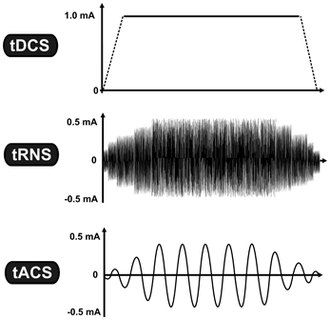Posts Tagged ‘Cognitive-Training-Program’
Non-invasive Transcranial Electrical Stimulation (TES) shows early promise to treat ADHD symptoms in children
Many children with ADHD benefit from medication treatment, behavioral treatment, or their combination, but others do not. In addition, parents are often reluctant to start their child on medication and high quality behavioral treatments are not readily accessible in many areas. The long-term efficacy of these treatments is also less than desirable. Thus, despite these…
Read MoreNew $1 million grant to study working memory training in children with fragile X
MIND Institute researchers receive $1 million grant to study cognitive training in children with fragile X (UC Davis Health System News): “Researchers at the UC Davis MIND Institute will examine whether children and youth with fragile X syndrome can improve their working memory, cognition and behavior by using an online computer-based cognitive training program, through a new…
Read MoreBrain Training: It Works, and It Doesn’t Work
The IMPACT study which we reported on in December 2007, funded by Posit Science, conducted by the Mayo Clinic and USC Davis, has just announced publication at the Journal of the American Geriatrics Society. Reference: — Smith et al. A Cognitive Training Program Designed Based on Principles of Brain Plasticity: Results from the Improvement in…
Read MoreAllstate: Can we improve Driver Safety using Posit Science InSight?
Insurance company Allstate and brain fitness software developer Posit Science just announced (see press release Protecting Pennsylvania Drivers, One Brain at a Time) a very intelligent initiative: Video exercises aid driving skills (Chicago Tribune) -“Allstate, which called the Posit program “potentially the next big breakthrough in automobile safety,” said it expects its software exercises to…
Read MoreBrain Health/ Brain Training News
Roundup of interesting news in this emerging field: 1) Brain Health Leaders Team Up to Prevent Crashes. 2) Adults Improve Critical Professional and Personal Skills Through New Cognitive Training Program. 3) Nature Neuroscience Podcast and London Taxi Drivers. 4) What Have You Changed Your Mind About, lately?. 5) The 2008 Mind & Life Summer Research Institute…
Read More“Tis better to give than receive”: oxytocin and dopamine
Jeffrey Gonce, a Psychology teacher at Red Land High School (West Shore School District, PA) just asked his students to “complete a project describing a recent brain (or genetic) study that affects behavior.” Â The students could opt to post their articles online, and Jeffrey was kind enough to send us a link to read the…
Read More

